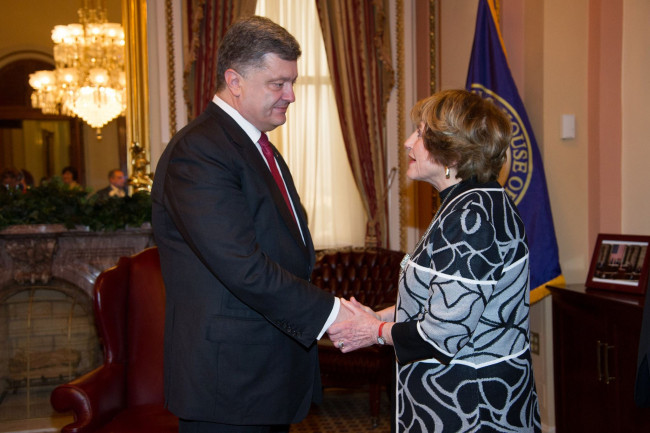
Congresswoman Louise Slaughter’s concern for human rights and the safety and security of her constituents intersected with international work to bring freedom and peace to the people of Ukraine (and nearby Baltic states), who were living under the repressive Soviet Union.
Slaughter took up the cause of Ukrainian Yosyp Terelia, who was known for his efforts to establish religious freedom and restore the Ukrainian Catholic Church. Terelia was one of 16 political prisoners—known as the Ukrainian and Baltic Prisoners of Conscience—being held in the Perm Camp 36-1 (labor camp) in Permskaya Oblast. And in anticipation of the historic summit meeting with between President Ronald Regan and Mikhail S. Gorbachev, Slaughter wrote Gorbachev a letter that said, “In the interest of our mutual concern for human rights, and in the spirit of improved relations between our two nations, we request that you expedite the release of these prisoners.”
Communicating her grievances to the Soviet leadership and the organizing work in Congress prompted the Kremlin to announce Terelia’s release as a part of the Soviet Union’s new “openness” (glasnost) policy. However, it was merely a façade. Realizing this, Slaughter and her colleague William S. Broomfield initiated a letter— signed by 103 members of Congress—to Gorbachev on the matter.
The aforementioned congressional actions to bolster and strengthen human rights were crucial moments for Ukrainian communities around the world.
Slaughter helped to lead the cause and the passage of the joint resolution, taking a stand against the Soviet Union for violating the Universal Declaration of Human Rights, the International Covenants on Human Rights, and the Final Act of the Conference on Security and Cooperation in Europe.
Closer to home, perhaps more intimate and inviting to her constituents, Slaughter acknowledged the work of Walter Hawrylak, who emigrated from Ukraine in 1939 and lived in her district. His death in July 1987, which had a huge impact on Ukrainian American communities across the country, has been a significant presence in the Ukrainian National Association. He was also the founder of the Rochester Ukrainian Federal Credit Union and had served the institution as treasurer and manager. Slaughter honored him with a statement in the Congressional Record.
Ultimately, this collection will open a line of discourse and inquiry for researchers interested in these historic world events.
Photo: Slaughter with Ukrainian President Petro Poroshenko in 2014.
You can help honor the congresswoman's legacy, preserve history, and advance learning and scholarship by supporting the work being done to process and prepare this collection. Learn more, and make a gift today.

